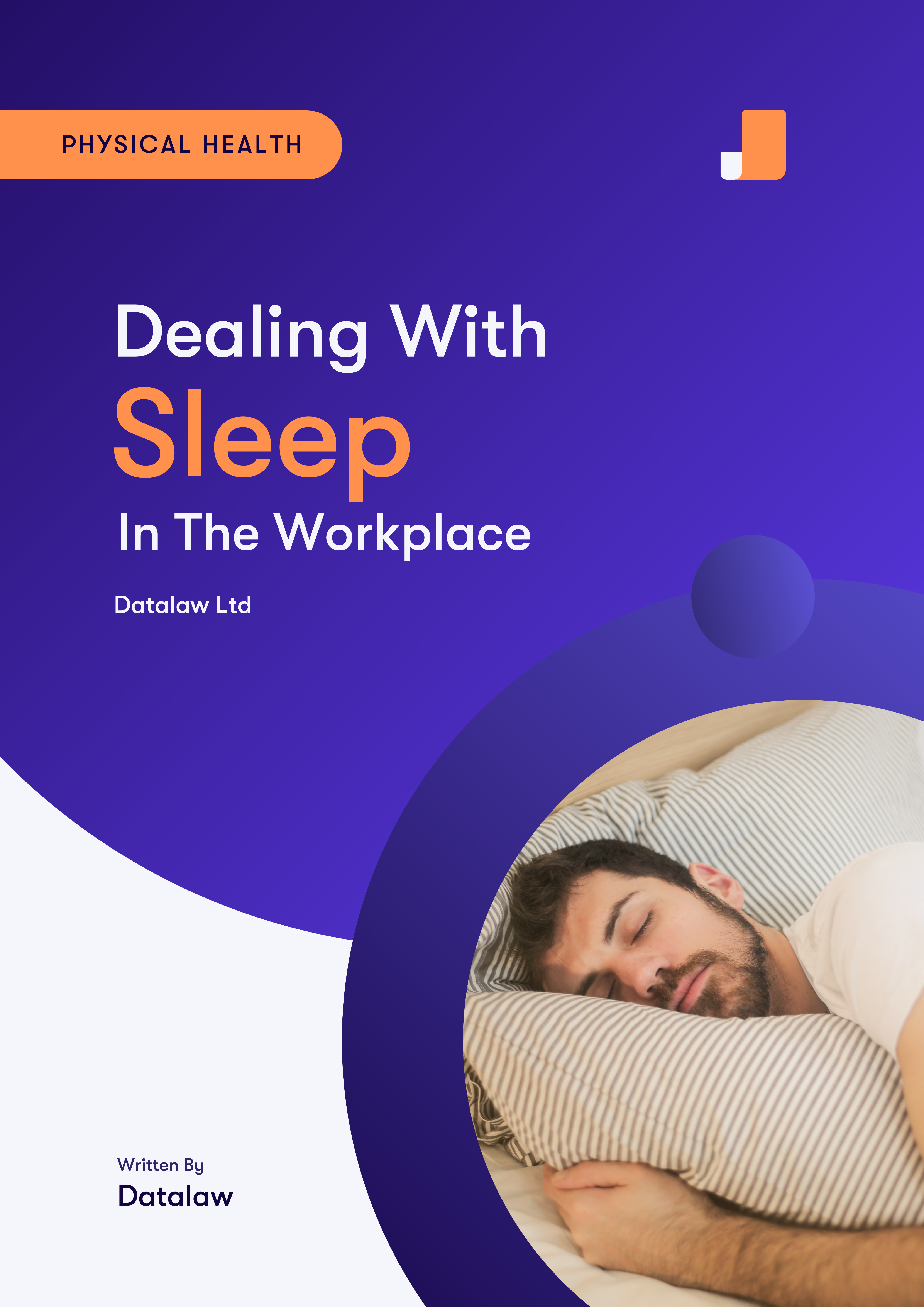EMPLOYEE WELLNESS
Sleep Guide
Sleep
Download our simple to follow 4-week Sleep Guide that can be used to help keep track of your sleeping habits.
Although living a 24-hour lifestyle has many advantages, it also means that many of us work odd hours and have less time for sleep. Additionally, few of us realise how crucial sleep is to maintaining a healthy lifestyle.
Recommendations
There are many different opinions on how much sleep we require. Six to eight hours are frequently recommended, although some people require less and some require more. The simplest response is that you require enough rest to awaken feeling refreshed and alert throughout the day.
Various negative effects of sleep deprivation are increasingly recognised, including moodiness and poor performance. Regularly getting inadequate sleep increases your risk of developing chronic illnesses including obesity, heart disease, and diabetes and reduces your life expectancy. Now it’s obvious that getting a good night’s sleep is crucial for living a long and healthy life. Poor sleep can be brought on by a number of things, including medical problems like sleep apnea. However, it’s usually brought on by poor sleeping patterns.
Tips:
Calm your mind. Spend ten minutes every night practising calming your mind. Breathe in for three seconds through your nose, focusing on your abdomen rather than your chest, and then exhale for three seconds. Take a three-second break before inhaling once again. Some people discover that valerian, lavender oil, or other plants aid with sleep.
Write down your worries, tasks, and/or thoughts. You’ll feel less stressed as a result of this.
If you start tossing and turning, get up. Find something enjoyable and absorbing to do and leave the bedroom. Jigsaw puzzles are ideal. Wait until you start to feel drowsy before returning to bed.
Regular exercise. A fantastic strategy to improve your sleep is to exercise frequently. Just be careful not to exercise right before night because exercise releases stimulants that prevent the brain from immediately relaxing.
Set up a peaceful sleeping environment. Don’t make it into a hub of entertainment with TVs, computers, and stereos.
Even on weekends, go to bed and get up at the same time every day. If you don’t feel like you slept well, don’t give in to the impulse to stay in bed later than usual. Waking up on time will maintain your body on its regular wake-up schedule.
Most of us experience a natural decline in attentiveness around 2 to 4 pm. When you’re fatigued, taking a 15-minute nap can help you stay attentive all day long.
If your issue persists, consult a doctor because most sleep disorders can be easily treated.
